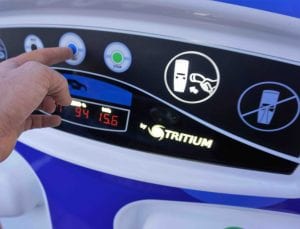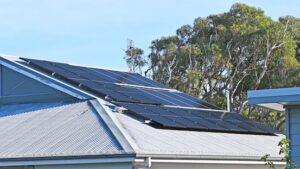The controversial electric vehicle road tax proposed by the South Australia Liberal government faces defeat in state parliament after Labor vowed to vote against the move, describing it as dangerous precedent for all motorists, and hoped to gain support from the minor parties.
The proposed tax has created howls of outrage ridicule from across the motor vehicle industry, and from EV advocates and consumers, as well as academics. But it has also raised concerns that it could be followed by other states.
“We should be striving to be a national leader when it comes to electric cars, which would benefit our economy and our environment,” said state Labor leader Peter Malinauskas.
“Instead, (state premier) Steven Marshall is whacking a new tax on electric cars, which will slam the brakes on the growing market here in South Australia.”
The new EV road tax was unveiled on Tuesday by state treasurer Rob Lucas, who described the decision as a “no brainer” because EVs do not pay fuel excise, as they don’t burn fuel. The tax will not apply to hybrid cars that burn only small amounts of fuel.
Critics say that the reasoning is flawed because fuel excise goes into general revenue, and EVs pay more than their fair share through the higher costs of their vehicles, so more GST, stamp duty, luxury tax and GST on electricity purchases to charge their battery.
Most admit that a road user tax will need to be introduced at some stage, but only when applied across the board, and not when there are no other incentives to encourage the uptake of EVs.
“Putting a tax on a car because it doesn’t produce any pollution is ridiculous,” The Australia Institute says. “It’s like saying someone who gives up smoking no longer pays the tobacco excise, so they need to pay a penalty for having given up.”
South Australia will become the first jurisdiction in the world to apply such a tax, without EV incentives, and plans to raise $1 million – which will probably translate into a combined fixed and distance fee of around $400-$500 per vehicle.
It’s a rare blot on the landscape for the state Liberal government, otherwise widely praised for its strong support for the green energy transition, its “net 100 per cent” renewables target, its push into green hydrogen, and even the government’s own EV transition policy announced for its own fleet just last week.
Greens MLC Mark Parnell said the state government had misjudged the mood.
“I suspect that the Treasurer didn’t quite realise the push-back he would get on this. A measure forecast to raise less than $1 million has received more attention than the billions of dollars spent in Covid response in the state Budget.”
If the Greens and SA Best (the former Nick Xenophon party) vote with Labor against the legislation, then they will have the numbers to defeat the government proposal if a bill comes before state parliament next year.
The decision has raised concerns that it could be mimicked by other states, and many wonder why South Australia is putting its reputation at risk for the sake of a federal revenue measure, and for such small amounts of money.
To read the full story on RenewEconomy’s electric vehicle dedicated site The Driven, click here…









